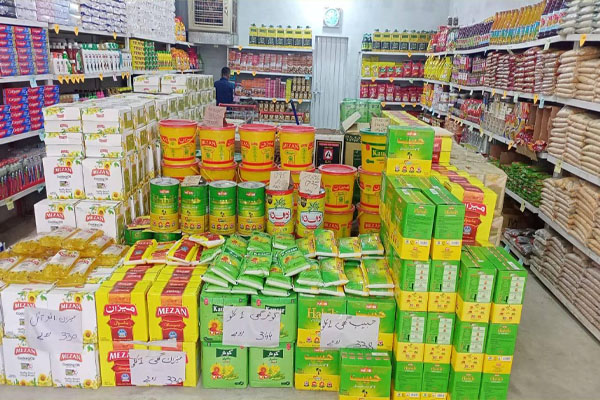Musafir123
Senator (1k+ posts)
FOR a number of years now the global regulatory regime for combating suspicious transactions has been tightening, and Pakistan has been feeling the squeeze mostly at the policy level. For years now, we have been watching from a distance as a ritual plays itself out, when a review of Pakistan’s compliance with a globally mandated anti-money laundering and terror-financing framework comes up, and Pakistan manages to pass the review very narrowly.
For a while the issue in contention was the absence of an AMT/CFT (anti-money laundering/countering financing of terrorism) law. Then in 2010, the law in question was passed via a presidential ordinance (it was originally passed in 2007 but ultimately allowed to lapse) while the government dithered about getting passage through parliament for it. So one more time, the AMF/CFT law lapsed, in 2012, and Pakistan was placed on a list of countries “that have been identified as having strategic AML deficiencies” according to the Financial Action Task Force (FATF).
Such deficiencies can impose costs upon the banking system because their counterparts in all correspondent banking relationships will always ask about FATF certification. If the country’s financial system has been deemed ‘deficient’ in its AML/CFT framework, the counterparty banks will need to do additional diligence of each transaction that comes to them through any bank from the country in question. The additional cost of this diligence can make others reluctant to enter into correspondent banking relationships with Pakistani banks, or impose additional charges, making all transactions to and from Pakistan more expensive.
Strategic deficiencies are going to make it increasingly difficult for Pakistani banks to interact with the outside world.
Pakistan struggled with this requirement of passing an AML/CFT law because it required the country to ban all those groups that were designated by the United Nations as terrorist groups. This was a problem because some of the groups on the UN list are now in the process of being ‘mainstreamed’, meaning the government was not at liberty to ban them. They tried, in 2010 for example, when the Foreign Office actually issued a notification to ban them, but was not able to do anything more than place them on a ‘watch list’. Even that lapsed by 2012.
There was a second round of trying to pass the right AML/CFT law starting in 2014, successful by 2015 when Pakistan was removed from the list of countries with identified strategic deficiencies in this crucial area. But even that removal was on narrow, technical grounds, with more work required to actually push for the banning of the groups, followed up with concrete action on the ground. The last review for this step was undertaken in July, and it is not yet known how well Pakistan has fared.
The reason why this history is important is because we have just seen a large Pakistani bank encounter its first serious brush with global regulatory authorities, and the episode should awaken a new appreciation of the stakes involved. A few other brushes in the banking sector have occurred too but none have resulted in action as serious as what we are seeing now.
Until now, the tightening of the global regulatory regime was something that was experienced on the outer fringes of our policy horizon. The conversations with the FATF were too technical for the layperson to appreciate, and the government was the only entity reaping the consequences, other than whatever incremental costs that had to be borne by the banks. But now that a narrow and technical level of compliance has been reached, for the first time we’ve seen a private bank become the target of an enforcement action by a regulator with global reach.
To be sure, all banks around the world are feeling the pinch from the tightening regulation. Over the years we have seen banks from Europe, Asia and even India become the target of enforcement actions, in some cases with fines being levied in the billions of dollars. But Pakistani banks escaped much of that scrutiny because their operations outside Pakistan are very rudimentary. They don’t engage in derivatives trading or participate in the mortgage lending inside in the US.
Most Pakistani banks do little more than engage in basic correspondent banking on the global stage: processing remittances and trade finance through LCs. These are rudimentary banking functions, but even here the costs of compliance with global regulatory regimes are climbing. Increasingly regulators in the advanced economies, particularly the United States, are raising the bar for banks to undertake due diligence of all parties that seek to move money through the banking system, and requiring banks to have very stringent and robust ‘know your customer’ policies. Any lapse on this front can carry a hefty fine, and increasingly such fines are being levied and demanded where in previous years a mere warning used to suffice.
The problem for Pakistani banks is two-fold. First, the high levels of informality in the country means that the mechanisms for evasion — such as using benami accounts — are highly developed and widely used. Second, the presence of designated groups openly carrying out large-scale operations such as charity and humanitarian work, who openly collect donations and control vast cash flows, means that due diligence for every client and enforcement of sound ‘know your customer’ policies becomes next to impossible to keep watertight.
These strategic deficiencies in the environment within which Pakistan’s financial system has to operate are going to make it increasingly difficult for Pakistani banks to interact with the outside world in the years to come, unless drastic remedial steps are taken urgently. A growing disconnect between our financial system and the global financial system will complicate trade and remittances, as well as raising and servicing foreign debt amongst much else. The tightening regulatory noose around the world is serious business, and opens up many avenues through which extremely harsh consequences can potentially come to Pakistan if it doesn’t clean up its act soon.
The writer is a member of staff.
[email protected]
Twitter: @khurramhusain
Published in Dawn, August 31st, 2017
For a while the issue in contention was the absence of an AMT/CFT (anti-money laundering/countering financing of terrorism) law. Then in 2010, the law in question was passed via a presidential ordinance (it was originally passed in 2007 but ultimately allowed to lapse) while the government dithered about getting passage through parliament for it. So one more time, the AMF/CFT law lapsed, in 2012, and Pakistan was placed on a list of countries “that have been identified as having strategic AML deficiencies” according to the Financial Action Task Force (FATF).
Such deficiencies can impose costs upon the banking system because their counterparts in all correspondent banking relationships will always ask about FATF certification. If the country’s financial system has been deemed ‘deficient’ in its AML/CFT framework, the counterparty banks will need to do additional diligence of each transaction that comes to them through any bank from the country in question. The additional cost of this diligence can make others reluctant to enter into correspondent banking relationships with Pakistani banks, or impose additional charges, making all transactions to and from Pakistan more expensive.
Strategic deficiencies are going to make it increasingly difficult for Pakistani banks to interact with the outside world.
Pakistan struggled with this requirement of passing an AML/CFT law because it required the country to ban all those groups that were designated by the United Nations as terrorist groups. This was a problem because some of the groups on the UN list are now in the process of being ‘mainstreamed’, meaning the government was not at liberty to ban them. They tried, in 2010 for example, when the Foreign Office actually issued a notification to ban them, but was not able to do anything more than place them on a ‘watch list’. Even that lapsed by 2012.
There was a second round of trying to pass the right AML/CFT law starting in 2014, successful by 2015 when Pakistan was removed from the list of countries with identified strategic deficiencies in this crucial area. But even that removal was on narrow, technical grounds, with more work required to actually push for the banning of the groups, followed up with concrete action on the ground. The last review for this step was undertaken in July, and it is not yet known how well Pakistan has fared.
The reason why this history is important is because we have just seen a large Pakistani bank encounter its first serious brush with global regulatory authorities, and the episode should awaken a new appreciation of the stakes involved. A few other brushes in the banking sector have occurred too but none have resulted in action as serious as what we are seeing now.
Until now, the tightening of the global regulatory regime was something that was experienced on the outer fringes of our policy horizon. The conversations with the FATF were too technical for the layperson to appreciate, and the government was the only entity reaping the consequences, other than whatever incremental costs that had to be borne by the banks. But now that a narrow and technical level of compliance has been reached, for the first time we’ve seen a private bank become the target of an enforcement action by a regulator with global reach.
To be sure, all banks around the world are feeling the pinch from the tightening regulation. Over the years we have seen banks from Europe, Asia and even India become the target of enforcement actions, in some cases with fines being levied in the billions of dollars. But Pakistani banks escaped much of that scrutiny because their operations outside Pakistan are very rudimentary. They don’t engage in derivatives trading or participate in the mortgage lending inside in the US.
Most Pakistani banks do little more than engage in basic correspondent banking on the global stage: processing remittances and trade finance through LCs. These are rudimentary banking functions, but even here the costs of compliance with global regulatory regimes are climbing. Increasingly regulators in the advanced economies, particularly the United States, are raising the bar for banks to undertake due diligence of all parties that seek to move money through the banking system, and requiring banks to have very stringent and robust ‘know your customer’ policies. Any lapse on this front can carry a hefty fine, and increasingly such fines are being levied and demanded where in previous years a mere warning used to suffice.
The problem for Pakistani banks is two-fold. First, the high levels of informality in the country means that the mechanisms for evasion — such as using benami accounts — are highly developed and widely used. Second, the presence of designated groups openly carrying out large-scale operations such as charity and humanitarian work, who openly collect donations and control vast cash flows, means that due diligence for every client and enforcement of sound ‘know your customer’ policies becomes next to impossible to keep watertight.
These strategic deficiencies in the environment within which Pakistan’s financial system has to operate are going to make it increasingly difficult for Pakistani banks to interact with the outside world in the years to come, unless drastic remedial steps are taken urgently. A growing disconnect between our financial system and the global financial system will complicate trade and remittances, as well as raising and servicing foreign debt amongst much else. The tightening regulatory noose around the world is serious business, and opens up many avenues through which extremely harsh consequences can potentially come to Pakistan if it doesn’t clean up its act soon.
The writer is a member of staff.
[email protected]
Twitter: @khurramhusain
Published in Dawn, August 31st, 2017
- Featured Thumbs
- https://i.dawn.com/medium/2017/08/59a778dd56cea.jpg

























